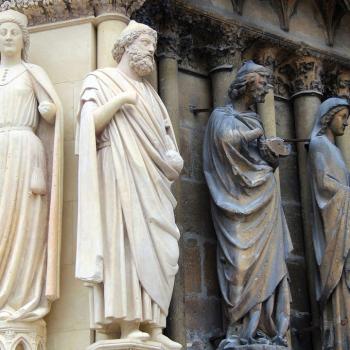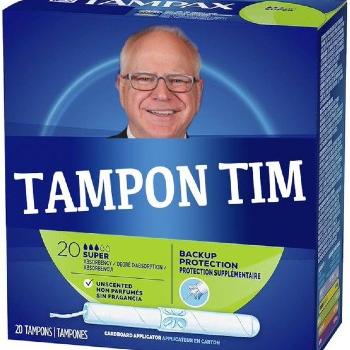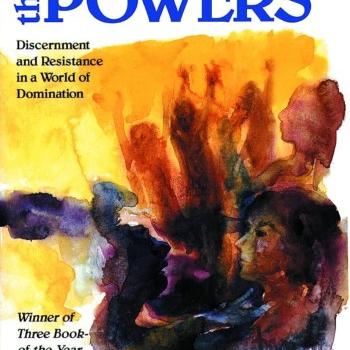So the health beat reporter at the paper does a nice piece on Westside Health Center and the other clinics that serve Delaware's un- and underinsured, and it prompts a letter to the editor:
As I read about Westside health clinics, the word "underserved" was used quite a few times. I have yet to find a community health center outside the city limits. I don't know of any in the suburbs of New Castle County. I would say the underserved would be the people who make incomes just beyond the qualifying amount to receive Medicaid or any health services provided by the state.
The underserved would be the Delawareans who work every day and pray no one in their families gets sick. They have to decide whether to go to the doctors, buy food, pay the electric bill or fill the car with gas.
The News Journal is there for prisoners, criminals and ex-crackheads. I feel better already.
That letter summarizes two great American tragedies.
First, as the writer says, there are millions of Americans who "make incomes just beyond the qualifying amount to receive Medicaid or any health services provided by the state," and who "work every day and pray no one in their families gets sick" and "have to decide whether to go to the doctors, buy food, pay the electric bill or fill the car with gas."
In the developed world, this is a uniquely American phenomenon. It's what you get when you pretend that there exists a "free market" for health care that functions just the same as the free market for soda pop or lawn furniture. It's a bad system — far more costly and inefficient than any of its various alternatives. Defenders of this system claim it is superior because it allows for competition — although in terms of cost, access and health, it's not very, um, competitive.
I doubt the letter writer will take much comfort from President Bush's proposed "Health Savings Accounts." HSAs will mean that instead of choosing between buying food and spending money at the doctor's office, he will have the exciting new option of choosing between buying food and setting aside money to be spent at the doctor's office later.
On the other hand, inefficiency does create jobs. America spends billions of dollars every year shuffling tons of paperwork that doesn't exist in the health care systems of any other developed country. Get rid of all that paperwork and tens of thousands of people would be out of a job. (And think of the gleam in a young child's eye when she says, "When I grow up I want to be an assistant billing clerk in a doctor's office and spend all day filling out forms in quadruplicate!" No Canadian child can dream such dreams.)
Millions of working Americans experience the food-or-health-care bind described above. It doesn't have to be that way. It ought not to be that way. Yet it is that way, every day, and the letter writer's anger on that score is understandable, appropriate and just.
But then there's the other tragedy illustrated by the letter above, which also involves a misunderstanding and misapplication of the idea of "competition."
The letter writer assumes that the working poor of the suburbs are pitted against the working poor of the city in a zero-sum struggle. He assumes that adequate medical care for the urban poor, or for prisoners and addicts, can only come at the cost of inadequate care for his family and other suburban families like them.
It is possible to imagine, or even to create, a society like the one the letter writer describes. It is possible to interpet the world this way, and thereby to ensure it is a world of zero-sum scarcity in which enough for one family can only mean not-enough for another family. Hobbes called this the "war of all against all," but he at least thought he was being pessimistic and not providing a blueprint for the ideal society.
It is also possible to imagine, and even to create, a society in which this is not the case — a society in which "enough" is available to everyone at the same time. This is precisely what Christian theologians imagine when they speak of the virtue and obligation of "solidarity." And it's what America's Founders imagined they had created when they wrote of "We the people," as in:
We the people of the United States, in order to form a more perfect union, establish justice, insure domestic tranquility, provide for the common defense, promote the general welfare, and secure the blessings of liberty to ourselves and our posterity, do ordain and establish this Constitution for the United States of America.
That still leaves more than enough to compete over because it leaves more-than-enough to compete over. People who have enough are free to compete for more-than-enough. People who have less than enough are free to decide between buying food and going to the doctor.
(Inoculatory footnote: Those who wish to characterize the above as "socialist" will need to demonstrate that the statement "Biological necessity results in inelastic demand" somehow leads inexorably to a centrally planned economy. Points will be subtracted for any use of the term "redistributionist" that does not clearly demonstrate why that term/epithet is not equally applicable to, say, private health insurance. Show your work.)
















